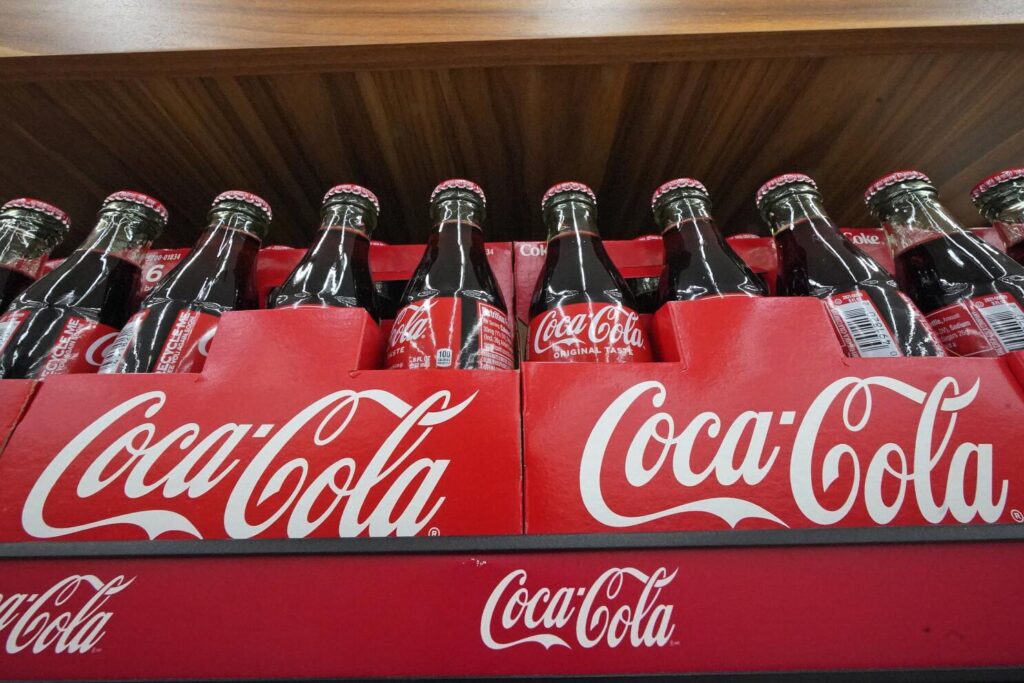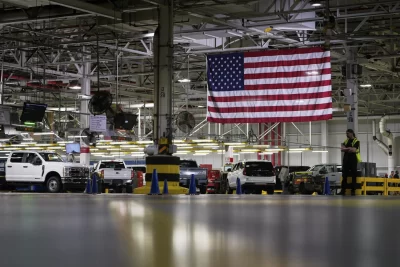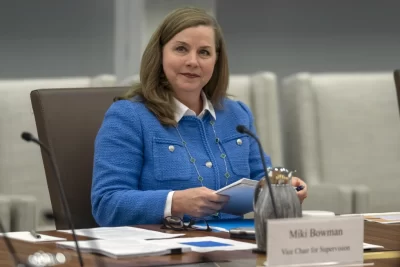
Bottles of Coca-Cola are on display at a grocery market in Uniontown, Pa, on Sunday, April 24, 2022. Coca-Cola reports earnings on Tuesday, Oct. 24, 2023. (AP Photo/Gene J. Puskar)
Coca-Cola raised its full-year revenue forecast Tuesday after a stronger-than-expected third quarter.
Atlanta-based Coke said it now expects its organic revenue will be up 10% to 11% for the year. That’s up from the 8% to 9% guidance Coke announced at the end of the second quarter. Coke expects earnings __ adjusted for currency variations __ will grow 13% to 14%, up from a previous forecast of 9% to 11%.
Coke’s shares rose 3% in morning trading Tuesday.
Coke said its global case volumes rose 2% for the July-September period. Coffee sales saw the strongest growth, as demand grew in the United Kingdom and China. Coca-Cola Zero Sugar sales were up 3% on growing demand in Latin America and North America. Sports drink sales also grew 3%.
Water sales were up 1%, while tea sales fell 1% on declining demand in Turkey and Latin America.
The company continued to raise prices to offset higher ingredient costs, but at a more moderate pace. Prices rose 9% in the most recent quarter compared with the double-digit increases Coke instituted in the previous five quarters.
Coca-Cola Chairman and CEO James Quincey said the company is seeing some price-conscious consumers trade down to private label brands or discount stores, particularly in Europe. In the U.S., consumers are pinched when buying for home consumption, but demand is strong at restaurants, stadiums and other venues.
“That is what is really driving the strength of the U.S. business,” Quincey said during a conference call with investors Tuesday.
In China, consumer spending on soft drinks has yet to fully recover to pre-COVID levels, Quincey said. Coke discontinued some less profitable drinks in China in the third quarter in order to focus on more popular beverages ahead of Chinese New Year in early 2024.
Net revenue grew 8% to $11.95 billion in the July-September period, topping the $11.4 billion that Wall Street had forecast, according to analysts polled by FactSet.
Net income rose 9% to $3.1 billion. Adjusted for one-time items, Coke earned 74 cents per share, better than the 69 cents analysts had expected.
Higher marketing costs ate into Coke’s profits. The company said its operating margin of 27.4% was down slightly from a year ago.
Quincey said marketing is the “motor” driving Coke’s growth.
“We are going to lean in and invest in the growth as long as growth is there, rather than trying to pull back in anticipation of something,” he said.
Coke is increasingly focused on digital advertising, which now makes up 60% of its total ad spending. In 2019, it made up less than 30%. Quincey said digital advertising is crucial to winning Generation Z consumers, who are spending up to nine hours a day on screens but rarely watch traditional television.
Coke rival PepsiCo also raised its full-year earnings forecast this month after a better-than-expected third quarter.







